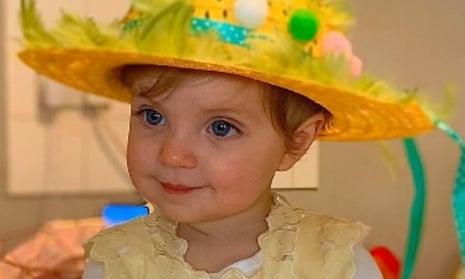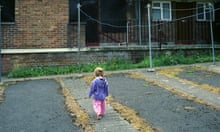Another week, yet another terrible case involving the murder of a child after months of abuse, by parents and carers whose casual violence, threats and neglect had led others to raise the alarm with social workers. Yet they slipped through the safeguarding net, with tragic consequences.
Less than a fortnight ago we learned of the appalling case of six-year-old Arthur Labinjo-Hughes, who was abused, tortured and beaten to death by his stepmother, Emma Tustin, during the first Covid lockdown. Tustin, 32, of Solihull, was jailed for 29 years; Arthur’s father, Thomas Hughes, received 21 years for manslaughter.
On Tuesday came the verdict on another shattering killing: 16-month-old Star Hobson, beaten to death in lockdown by her mother’s partner after months of cruelty and abuse. Savannah Brockhill, 28, of Bradford, was convicted of murder, while Star’s mother, Frankie Smith, 18, was found guilty of causing or allowing the death of a child.
After the shock at the inhumanity of the perpetrators – and their brutality, narcissism and sadistic determination to do harm – come inevitable questions about the authorities whose duty is to safeguard vulnerable children. Why were chances missed to intervene to potentially save Arthur and Star?
We know that between January 2020, when Star was first visited by a social worker, and her death on 22 September that year, six referrals were made to safeguarding staff by friends or family concerned about her safety. Social workers visited four times and closed the case on three occasions. The police visited once and arranged for Star to be medically examined at a hospital, with seemingly no follow-up.
Why were these opportunities missed? The inquiry into the circumstances surrounding Star’s death will consider in detail why officials who visited the family concluded there was no obvious risk. Human error and poor professional judgment is often a factor in these cases, as is the manipulative deceit of the abusers.
But it is also clear in the case of Star’s death that errors occurred in a specific context: not just lockdown, with all the confusion and restrictions that entailed, but a social work department that had been struggling for years, was deluged with work and had huge staff turnover.
Ofsted inspectors judged Bradford’s children’s services “inadequate” in 2018, two years before Star’s death. They uncovered chaotic child protection services, and social workers leaving in droves, at a time when referrals of children were soaring. There was poor practice, they found, “leaving children at risk of significant harm”.
Children at risk were often exposed to neglect for too long before action was taken to protect them, Ofsted found. Social workers were sometimes guilty of “over-optimism” and failed to take swift enough action in some cases where children were living in households where domestic abuse was taking place.
Ofsted visited on six subsequent occasions to monitor the department, including during the period in which Star was referred to social services. Improvement was slow. There was “drift” and delay in assessing children. Some individual social workers were overseeing as many as 50 children at a time.
The problem with high caseloads, said Ray Jones, an emeritus professor of social work at Kingston University, is that they can quickly overwhelm staff, forcing them to close cases just to keep on top of the constant flow of new ones coming in. “It is likely that if they could find a reason to close work down, they would do,” Jones said.
Was there pressure to close down cases? The high reliance on agency staff meant a high degree of organisational instability, Ofsted noted. Such volatility typically leads to the loss of local knowledge, Jones said. “These are workforces that are not getting to know their families.”
The detailed answers as to why safeguarding agencies did not do more to try to save Star and Arthur are subject to independent inquiries. The former review is expected to report in January, and the latter as part of a wider national review into “lessons learned”, no doubt triggering wider debate about how children’s social care should be run.
But Star’s death is unlikely to be the last of its kind to emerge from lockdown, and Bradford is not the only council struggling to keep its child protection department afloat and working effectively. There will be wider questions too about cuts, about the erosion of family support services, and the legacy of a decade of austerity.








